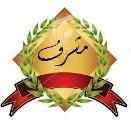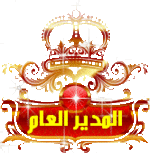Islamic Art
by Elisabeth Siddiqui
An Introduction to Islamic Art
Art is the mirror of a culture and its world view. There is no case to which this statement more directly applies than to the art of the Islamic world. Not only does its art reflect its cultural values, but even more importantly, the way in which its adherents, the Muslims, view the spiritual realm, the universe, life, and the relationship of the parts to the whole.
For the Muslim, reality begins with and centers around God ("Allah" in Arabic), the One, the Unique, the Sovereign, the Holy, the Almighty, the All-Knowing, the Loving, the Most Merciful. All existence is subject to His will and His laws. He is the center of conscious Muslims' worship and aspirations, the focus of their lives.
Since the command and authority are one, all things are bound together under God's Lordship as parts of an all-encomp****ing divine scheme, which includes all aspects of being and life -- whatever is both inside and outside of time and space, and embracing both the macrocosm in its most awesome manifestations and the microcosm in its most minute forms. God creates and sustains His creation how and as He wills, and all affairs return to Him for ultimate decision and judgment.
With such a belief system, the Muslim is convinced of the balance and harmony of all things in existence, even when there appear to be confusing contradictions and imbalances, regarding these as the reflection of man's limited understanding and knowledge. Nothing is looked upon as occurring randomly or by chance, for all is part of the Plan of the All-Wise, Most Merciful Planner. One of the vital beliefs of the Muslim is that the totality of things, all good and evil, proceed from the Lord of all being.
Because of the strict injunctions against such depictions of humans or animals which might result in idol-worship, Islamic art developed a unique character, utilizing a number of primary forms: geometric, arabesque, floral, and calligraphic, which are often interwoven. From early times, Muslim art has reflected this balanced, harmonious world-view.
________________________________________
The Islamic View of the Cosmos
In the Islamic view, God is the Ultimate Reality. All things in the visible creation emanate from Him and are manifestations of His divine Names or Attributes (Sifat). He created the cosmos, both what is known to man and what is unknown, and He is the Sustainer of all things, with everything turning to Him and centered upon Him. This is evident in the very structure of atoms .
The early Muslim artists and artisans who derived the intricate systems of interconnected geometric forms which constitute the bases of Islamic geometric art of course had no idea of such realities. Nonetheless, the graphic manner in which they conceived God's supreme central place in the cosmos, and the connection of the parts of creation to Him and to the whole, reflects a very significant approximation of what can now be ********ed by science.
________________________________________
The Tradition of Fine Craftsmanship
Throughout the history of Islam, its art has taken a great variety of forms in the different parts of the Muslim world, which stretches from North Africa to Southeast Asia, according to local customs and conditions, ranging from unsophisticated folk art to that of the most skilled artist or artisan. In the works of the latter, whether it be a master calligrapher, a renowned ceramists or potter, a skilled embroiderer or miniature-maker, the legacy of fine craftsmanship, involving the mastery of an art or craft along traditional lines complete with meticulous attention to fine detail, is characteristic.
These traditions persist today, and Islamic architecture and decorative arts are still very much alive and valued in many parts of the Muslim world. While Western-style art forms and machine work have to an extent eroded the traditional forms, nonetheless, handwork is respected and loved, an important aspect of the decoration of mosques and Muslim homes. In particular, decoration featuring Qur'anic calligraphy is an important aspect of Islamic art.
________________________________________
The Ageless Legacy of Arabic Calligraphy
Arabic is the language of Islam. It is the language of its prophet, Muhammad; the language in which the Holy Qur'an, Islam's sacred ******ure, was revealed to him by God; the language of Muslims' worship; and the language which binds Muslims of all times and places together in a single cohesive brotherhood.
Because of Muslims' profound respect and love for the Qur'an, the art of calligraphy was developed among them from early times to a very high degree. Throughout the Muslim world, Qur'anic verses embellish mosques, palaces and homes, businesses, and, in some places, public areas. Often the calligraphy is done in conjunction with decorative motifs, lovingly embellishing what is most sacred and precious.
Due to its peculiar character, the Arabic ****** lends itself wonderfully to decorative use. Over the centuries, many different ******s have evolved in various regions of the Muslim world.
Arabic is read from right to left, with an alphabet of twenty-six letters, of which three are long vowels. Short vowels are indicated by small symbols above or under the letters themselves.
________________________________________
"God is Beautiful and Loves Beauty"
-- so said the Prophet of Islam some 1400 years ago. He also said, "God likes that when you do anything, you do it excellently." Such prophetic sayings (hadiths) have provided the impetus for Muslims' embellishment and beautification of their places of worship, homes, and even of articles in common use in everyday life. The emphasis in Islamic art is on ornamentation rather than on art for art's sake; while the names of the producers of the finest works of Islamic art may not have survived, their works have become prototypes and models on which other artists and craftsmen patterned their works, or from which they derived the impetus for related work.
An example of this is a small pouch embellished with cross-stitch embroidery and ornamented with coins. The pouch holds a small unseen bottle, which Jordanian Bedouin women used to hold kohl, a natural eyeliner. But in keeping with the Muslim tradition of ornamenting utilitarian articles, a very ordinary brown gl**** bottle has been given a place of honor in a beautifully embroidered work of decorative art.
Such arts as embroidery and fine crocheting were commonplace skills among Muslim women in the past -- and still are in some places in the Muslim world -- as each growing girl and her mother worked in periods of spare time during the years before the girl's marriage to produce a set of finely hand-worked bed linens, towels, prayer rugs, quilt, tablecloths, and the like for the bride to take to her new home.
Today, the finest arts, including rugs, are to be found in Turkey, Iran, Syria, Pakistan, India, Egypt and Morocco, where the legacy of Islamic arts remains alive and strong.













